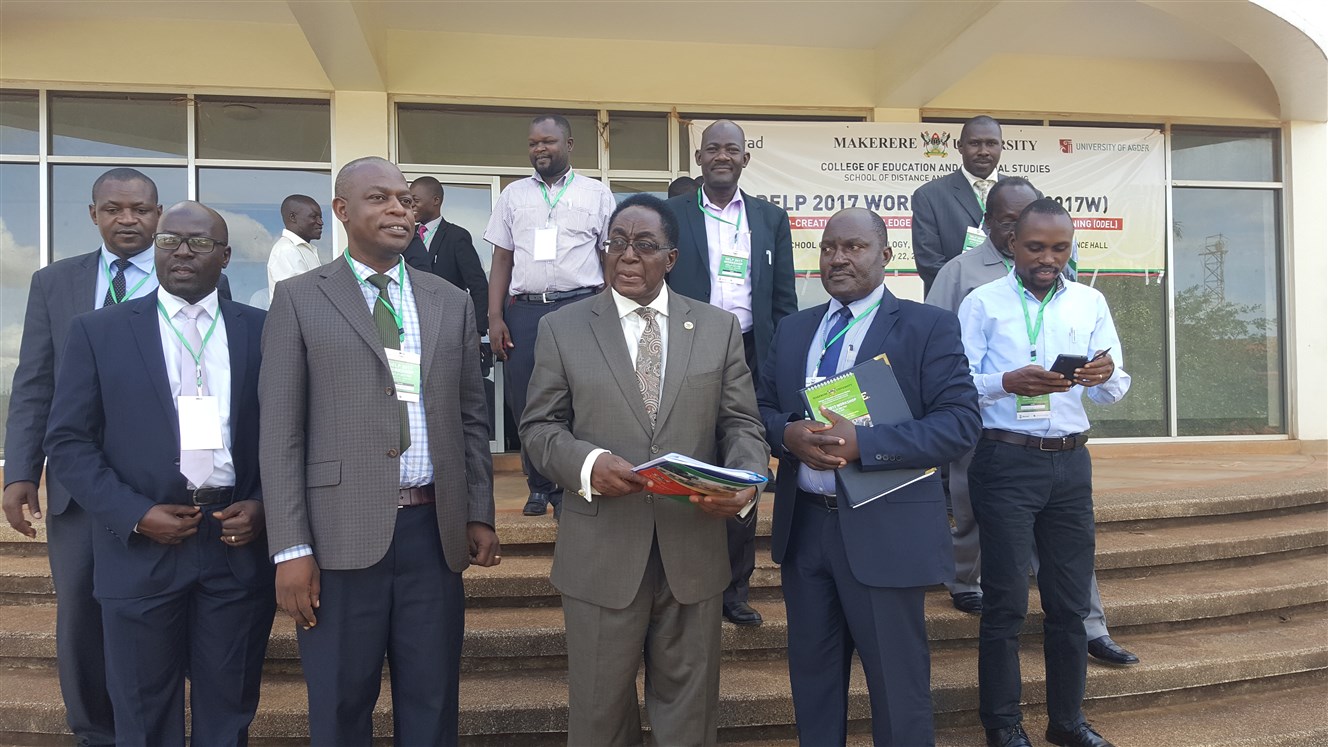As part of the World Food Day celebrations,the College of Education and External Studies’ (CEES) Education for Sustainable Development (ESD) Club made a donation to deprived families in the Katanga slum, Wandegeya.
World Food Day is celebrated on 16th October every year under the direct auspices of the Food and Agricultural Organization of the United Nations. The theme this year is “Sustainable Food systems for Food Security and Nutrition". Efficient, well-managed and sustainable food systems are essential to end hunger and malnutrition as well as protect the environment.
The ESD club comprising staff and students donated items which included; 110kg beans, 170kg maize flour, 120kg rice, 60kg sugar, 150kg beef, 5kg millet flour, a carton of milk, 35 paw paws, soap and clothes. In keeping it green, the items were distributed in reusable and biodegradable packaging of kikapus made from naturally growing plants.
Every day, more than 840 million people go hungry in a world of plenty. Of these, 827 million people live in developing countries.
“By donating durable and nonperishable food items, we are aiming at bringing meaning and happiness to these people’s lives and putting a smile on their faces,” said the Chair Department of Adult and Community Education Dr. Janice Busingye. “Twenty disadvantaged families will be food secure for the next two weeks".
The patron of the ESD club, Dr. Jessica Aguti urged members to stop playing the blame game with government and MakerereUniversity for not doing enough and called them to be responsible and to extend to communities.“It is possible for us to live happily and sustainably if we choose sustainable consumption patterns where those who have can share a little with those who do not have. This practice in a sustainable food system will ensure food security and nutrition in the world,” she said.
A food system is made up of the environment, people, institutions and processes by which agricultural products are produced, processed and brought to consumers. Every aspect of the food system has an effect on the final availability and accessibility of diverse, nutritious foods and therefore on consumers’ ability to choose healthy diets.
According tothe Coordinator ESD club Mr. Philemon Mukisa, they were overwhelmed by the enthusiastic response of the CEES community’s donation contributions. He revealed that the club collaborated with the Local Council in Katanga slum Wandegeya to identify families that struggle to find food to live on. Most of these families are headed by widows.
He called for a renewed form of community engagement where the University not only transfers the knowledge it generates to its surrounding areas through academic study/research but also by giving back to the community to engineer change and sustainable development.
The ESD club gives staff and students of Makerere University a platform to engage in social-academic activities that help them to learn and adopt sustainable development practices from the very knowledge they acquire in the classroom and society at large.
Activities such as these are part of the CEES’ continued commitment to building strong community relations and engagements.
By Sheila Mwebaze Tindi




